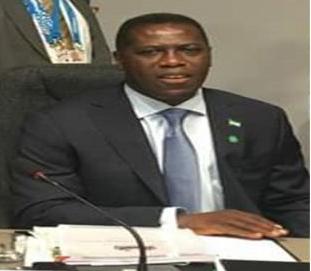Taxes (Problem) & Technology (Solution)
Jan. 8, 2011 – TAXES : Web surf these days and one comes up with almost unlimited number of proposals on how to produce new revenue streams, for ailing governments. The first option is to improve the efficiency of revenue collection that is already in place. It is amazing how much more money governments are coming up with. Simply adding interest and penalties on late payments is adding decent amounts to the coffers. (I have yet to hear of incentives to revenue collectors who are given a percentage of the receipts.) Every citizen is expected to pay their various taxes. The retailer collects taxes on behalf of the government. The retailer therefore needs good record keeping to prove the government is getting everything due. One advantage of such scrutiny is that governments will use this information in their development planning, and then store for research and archival purposes. Governments are then able to see the spending habits of their populations, to produce legislation, in consultation with the populace, that will improve the lives of the citizens. Using Freedom Of Information acts, citizens, governments and businesses will be able to use this information to build business models for whatever activities are planned. As long as the information is gathered in the correct manner and form, it becomes a gold mine for government and citizens alike. (Photo: Sewanu Kponou, author)
The above picture is what should happen in a progressive society. However the reality in a lot of African countries differs. The size of the gap in the difference between “progressive” and African countries is determined by the party concerned, purely subjective. The value of each groups’ approach is also purely subjective. The fact of the matter is that in nations/countries/societies where the idea of taxation for the common good is almost foreign then the challenges are different. In Sierra Leone for example I am going to hazard a guess that there are no more than 6,000 structures, commercial or residential, in Freetown, that are taxed. I will not make such a guess about the situation in the rest of the country, since I feel that, percentage wise, it will be even less outside of Freetown. I am using property taxes because a good percentage of revenue for “progressive” societies comes from property taxes. I do not know the extent of taxation on business and how they are assessed. However, based on information coming from a long time business person in Freetown, the amount taxed is a trade-off of the amount of bribe requested by the assessor and what you are willing to pay for a false/bloated assessment. How the assessors arrive at their figures beats the imagination. Most businesses are cash based and do not have registers to ring up sales or issue receipts. Most retailers buy from the wholesaler on a cash basis with no receipts issued. The wholesaler may be the importer and may therefore carry documentation of what was imported, if not we have another layer of transactions without documentation. The same applies to the farmer growing his crops and selling without any form of documentation.
We now have a picture of a country that does business without documentation for the majority of transactions. If there is no indication of the amount of business been done how can any accurate decision be made, as to how to tax the individuals and companies? The question of illiteracy rears its ugly head in a discussion like this. How is the issue of illiteracy addressed in the grand scheme of things? For illiteracy to be addressed more schools will have to be built. However, construction and operation of schools come from revenue collected. It seems like we are going in a circle. Like other goods and services provided by the government, there is a cost associated with the provisioning of these services.
The indications on the ground are that the neo-colonialists (NGO’s and donor governments) have not stepped up to the plate. Therein lies the problem. Virtually everything been done in the country comes with the blessing of our new national parents, donor countries and NGO’s. One wonders how did these governments get the money to fund these projects. Is it possible that taxation played a part? It is rather sad that very few companies and individuals pay commensurate taxes, if any at all. If the average consumer is made to realize the importance of taxation, I do believe that there will be a lot of support for taxation laws to be implemented. If there is not much support for taxation then what are the reasons?
Bai Bureh, and others in history, fought for representation, because they were been taxed, but not represented in the decision process. For many a government, that (taxation), is not a good road to travel. It means that Joe & Jane Citizen will now want to know what is happening to their taxes that have been paid. It is therefore easier to be a donor recipient and be given a pittance than to face the questioning of your own people. People who do not pay taxes will not expect much in return, because they have not had to pay for anything. It simply means the country will lag with modern day facilities and infrastructure. Dependence on donor handouts will never create meaningful development, because these handouts can never amount to anything that will enable real development. Donor handouts are similar to smoking on bees when you need to extract the honey from the hive.
TECHNOLOGY – to the rescue If there is going to be any relief, then digital wallets, if the governments want to utilize them, can be a step in the direction of garnering information about business transactions. Digital wallets is basically the digitizing of money and putting on an electronic device (cell phones), not unlike an ATM card. These come in handy and reduce the amount of cash carried around, especially in areas where there are no banks. MPESA alone has done in excess of Sh600Bln (approx. US$ 7.5bln) over 4 yrs. of transactions, and it is just one of a growing list of companies. In articles read thus far I have yet to find one that indicates how governments are making use of the information garnered from these transactions to help in revenue collection and planning. At this point I cannot see any reason why governments should not actively promote this new form of “banking”. My stress has been on using this system for information gathering, for without accurate information, planning is a pipe dream, as is evident by the many white elephant projects that abound in Africa.
The final solution to the problem of development is not going to come from $3mln to $10mln projects, of which half the amount never left the benevolent donors shores anyway. The various underdeveloped countries have to get their revenue generation in order by first cutting fat, (bloated patronage laden government offices and agencies) and encouraging local entrepreneurs (capacity building) to thrive, so that they stop losing huge sums on consultancy and development, to external individuals and groups. Finally, in Africa, without regional trade and much more economic cooperation, by sharing of resources, the region is doomed to stay underdeveloped.
By Sewanu Kponou, Atlanta, Ga., USA
Stay with Sierra Express Media, for your trusted place in news!
© 2011, https:. All rights reserved.







Johannes Rogers
/
My short comment on the issue of Govt. collecting revenue in the form of taxes is that – some of us long for the day the national Revenue system of S/Leone will be centrally computerised.
14th January 2011Centrally computerised I mean that even the revenue collected in the smallest or farthest Chiefdoms will have the means of instant entry into a central Computerised system.In the absence of the above,the people’s compliance to pay taxes, fines, rates and other revenues cannot be realised with the present systems in place. IT IS HIGH TIME THAT THE NATIONAL REVENUE COLLECTION OF SIERRA LEONE BE FULLY CENTRALLY COMPUTERISED.
Centrally computerised I mean again that the Customs Officer in the Guinea or Liberia border can enter revenue collected in their various post locations and this entry could be seen on the computer screen of an Officer in the MoFED Ministry. In the absence of the above we are mere actors who will forever be donor reliant.
Sierra Leone will have to grow and in the name of Jesus this our beloved country will.